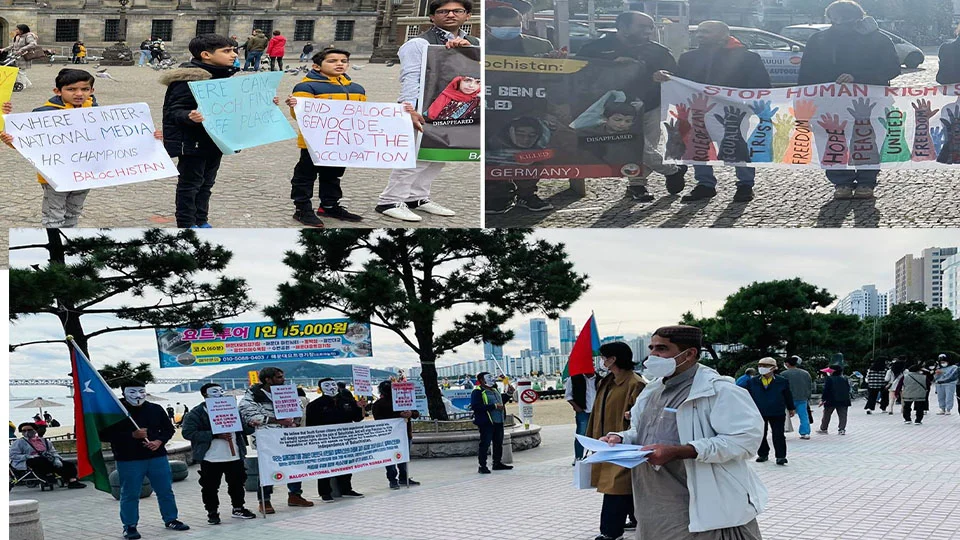The Baloch National Movement (BNM) Germany Chapter held its 5th General Body Meeting in Hannover on Friday, attended by top BNM leadership including Chairman Dr. Naseem Baloch and central committee members. The meeting saw the election of a new cabinet for the German chapter.
The event commenced with the Baloch national anthem and addresses by outgoing President Asghar Ali and visiting central committee members Haji Naseer, Hatim Baloch, and Hammal Baloch. Dr. Naseem Baloch delivered a keynote speech highlighting the impact of international politics on the Baloch struggle for independence.
After the formal dissolution of the previous cabinet, an election was conducted overseen by Haji Naseer, Hatim Baloch, and Hammal Baloch. The newly elected BNM Germany cabinet includes Shar Hassan (President), Safia Manzoor (Vice President), Jabbar Baloch (General Secretary), Shali Dad (Joint Secretary), and Amjid Murad (Finance Secretary).
Incoming President Shar Hassan vowed to uphold and enhance BNM’s political agenda in Germany. Dr. Naseem Baloch congratulated the new team, expressing hope they would continue the legacy of BNM’s German chapter founder Waja Gafaar Baloch.
Protest in South Korea
Meanwhile, the BNM South Korea chapter is organizing a protest in Busan city’s Biff Square to denounce the ongoing Pak Military atrocities in Balochistan, including killings, abductions of civilians and the prolonged occupation.
The protest aims to raise global awareness about the dire human rights situation, as Pak forces continue perpetrating violations daily. Earlier in March, the BNM’s spokesperson raised alarm over the military operations in the Bolan, Sabi, and Harnai regions of Pak-occupied-Balochistan.
Since the illegal occupation of Balochistan by Pak Army in 1948, the Baloch people have faced widespread atrocities including extrajudicial killings, enforced disappearances, torture, harassment at checkpoints, and kidnappings for ransom, as documented by human rights groups.
The BNM leadership has criticized the international community’s silence, accusing it of enabling Pakistan’s military aggression in the resource-rich Balochistan region through lack of accountability.

